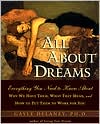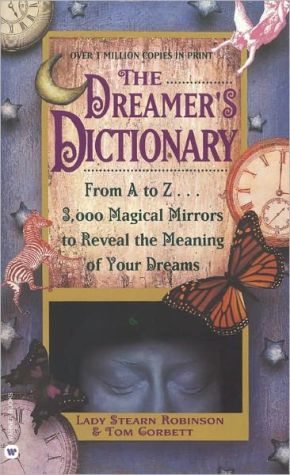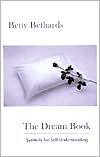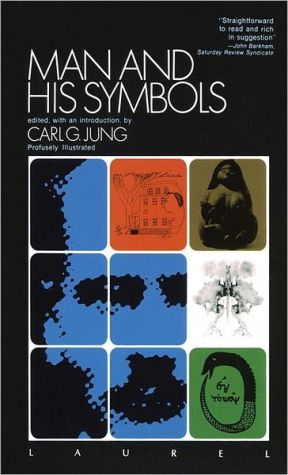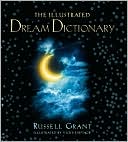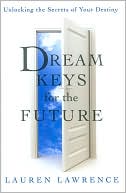All about Dreams: Everything You Need to Know about *Why We Have Them *What They Mean *and How to Put Them to Work for You
EVERYTHING YOU NEED TO KNOW ABOUT DREAMS\ Why we have them, what they mean, and how to put them to work for you.
Search in google:
EVERYTHING YOU NEED TO KNOW ABOUT DREAMSWhy we have them, what they mean, and how to put them to work for you.
HOW OTHERS HAVE INFLUENCED\ \ WHAT YOU THINK ABOUT DREAMS\ How have people in different times and in different cultures regarded their dreams-as illusions or realities? What are the causes and purposes that have been assigned to dreams? What have different people said one should do with and about a dream? Who should interpret dreams, and by what authority? What is the relative balance of power between the dreamer and the interpreter? And finally, what difference does it make if the dreamer is a man or a woman?\ The way you interpret your dreams today depends upon which traditions you have accepted from the past and upon the quality of those traditions. And of course your ability to understand your dreams depends upon your ability to modernize the best of these traditions so that they fit the reality of your current life. Many of us have accepted old beliefs of dubious quality, and need to reconsider their validity if we are to understand our dreams and make them a part of our problem-solving strategy for living a good life. Knowing how the history of dream interpretation has shaped our current beliefs about our own dreams enables us to shed the straitjacket of superstition and to choose our own path with greater discrimination.\ My brave editors told me that we would be taking a chance by leading off with a serious history chapter, but we decided that readers deserve a better look at the forces that have formed so many of our opinions about dreaming. Personally, I've had enough of those vague, dull five-page histories on dreaming. I want to give you a feel for how dreams were worked with in other times and places, and so have includeddescriptions that take you back in the principals' own words. We have included note references so that you can go into more depth on your own if you are curious about specific areas. If you are not in the mood to read about the often surprising dream practices of the past, you can skip this chapter and go right to chapter 2 or 3 and begin there. But reading this chapter will, I hope, fascinate you. Here we go on our quick global tour of the history of dreams.\ How Real Are Dream Images?\ \ \ It has often been said that people in primal societies are unable to distinguish between dreaming and reality. Barbara Tedlock, a psychological anthropologist with a special interest in dreaming, cites Edward B. Tylor, a nineteenth-century anthropologist, as an example of someone with the ethnocentric attitude that limited the perceptions of many Western observers of these cultures.' Tylor said, "The entire life of primitives was nothing but a long dream," adding, "The savage or barbarian has never learned to make the rigid distinction between imagination and reality, to enforce which is one of the main results of scientific education." Tedlock concurs with anthropologist Irving Hallowell that "such notions are absurd, given that humans could not have evolved without making some sort of distinction between dream experiences and those of the waking physical world."\ What Tedlock has appreciated and so many of her predecessors have not is that people in primal cultures as well as in other cultures often consider the world seen in dreams to be as real as, or more real than, the waking world. At the same time they distinguish clearly between waking and dreaming realities. What is considered real and unreal in any given society is determined by that society's religious and scientific beliefs.\ Our own Western culture's dim view of the reality of dreaming has been greatly influenced by Aristotle, Francis Bacon, and the later empiricists. In thefourth century B.C.E., Aristotle, the greatest theoretical scientist of the ancient world, launched an effective campaign to deny the reality of dream images by explaining dreaming as a secondary function of our apparatus of sense perception. Aristotle believed that the movement of blood in our sense organs, which continues day and night but of which we are generally unaware during waking, causes certain images to arise in dreams. Aristotle wrote that the first subtle symptoms of an impending illness might make themselves known to the dreamer through this mechanism. He said that the emotions and reason of the dreamer would determine the final shape of these images, which he compared to waking illusions.\ Aristotle allowed that clairvoyant dreams are worth interpreting. He theorized that the dreamers of such dreams received "movements" (we might say vibrations) caused by an event, and the consequent sense perceptions of which sleepers are exquisitely aware produce dream images of varying degrees of clarity.' So at best, according to Aristotle, dreams could reflect the real world, including the state of the physical body, but they themselves were only visual images that most dreamers mistake for reality'\ Aristotle has been described as having foreshadowed the empiricist's way of thinking, which was later articulated by Francis Bacon (1561-1626), who brought to the forefront of Western thought the belief that systematic, empirical evidence was the only key to obtaining reliable knowledge about what is and is not fact.' As methods of empirical inquiry developed, phenomena like the images in dreams that apparently could not be isolated, quantified, experimented upon, and interpersonally verified were consigned to the realm of the unreal.' In the West, the reality of the experience of dreaming was not denied, but the images of dreams certainly did not qualify to be considered as a meaningful part of the real world. But let us take a broad overview of how different people have judged the reality and meaningfulness of dreaming before we look more closely at our Western tradition.
